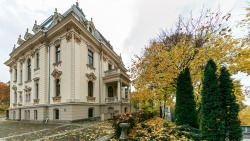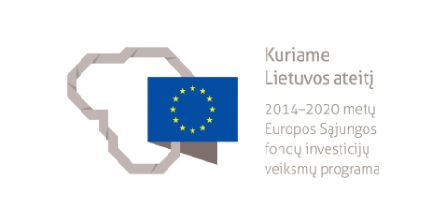.jpg)
"Gentlemen, let's work, let's work only on culture and economy,
and when all this is multiplied, politics will come into its own..."
Petras Vileišis, a prominent industrialist.
Petras Vileišis was born in 1851. January 25 In Mediniai, Pasvalis district, in the family of free royal peasants Vincent Vileišis and Agota Macėnaitė. Since 1861 he studied in Panevėžys and in 1870 graduated from the Šiauliai Boys' Gymnasium with a gold medal. After gymnasium he entered the Faculty of Physics and Mathematics of St. Petersburg University and in 1874 he graduated with the degree of Candidate of Mathematical Sciences. In 1880 graduated from the St. Petersburg Institute of Road Engineers, received the title of engineer and was appointed to the Moscow District Railway Road Board. In 1883 Vileišis was sent to Belgium to familiarize himself with the new technique of building iron railway bridges using caissons. After working for some time in the board as a caisson specialist, he founded a construction company and built iron bridges, thus earning a lot of money. In 1890 Petras returned to Vilnius. Here he established a mechanical workshop for agricultural implements (1900), a printing house for publishing Lithuanian books (1904) and a bookstore of Lithuanian books. In 1904 he starts publishing the first legal Lithuanian newspaper "Vilniaus žinios" (it ran until March 1909), interesting, that Petras edits it himself.
1905-1906 Petras Vileišis builds a wonderful house in Vilnius. In 1905 after Jonas Basanavičius returned to Lithuania, he took care of the convocation of the Great Vilnius Seimas and the establishment of the Lithuanian Science Society (LMD). In 1907 he is elected to the LMD board. However, the money he brought from Russia ran out, and the workshop, printing house, bookstore and editorial office were unprofitable. We had to sell the workshop (it was bought by the Vilijos joint-stock company), the bookstore (the books were bought by J. Šlapelis), and the printing house. In 1908 Vileišis and his family went to earn money to Russia again. He manages the construction of bridges there, participates in the activities of the Lithuanian Society (helping victims of the war), and takes care of the restoration of the Lithuanian state. He returned to Lithuania in 1921 and settled in Kaunas. In kaunas Vileišis works as the head of the Engineer Corps of the Ministry of Transport, and in 1922-1923 he is appointed in the Cabinet of Ministers headed by the Lithuanian Minister of Communications E. Galvanauskas. In 1923 The Faculty of Humanities of the University of Lithuania grants Petras Vileišis an honorary doctorate in Lithuanian literature,
Petras Vileišis died in 1926. August 12 In Palanga, he was buried with state funds in the basement of the Kaunas Basilica. In 1935 the remains were transported to Vilnius and reburied in the grave of the Vileišii family in the Rasa cemetery.
Petras Vileišis took an active part in the Lithuanian social movement, promoted the development of the national capitalist economy, petitioned the tsar's government officials for the recovery of the press in Latin letters, and took care of education. He materially supported the publishing of Lithuanian periodicals, collaborated in "Varpas" and "Aušra", wrote and translated books himself, corresponded with foreign printers, organized the publication and distribution of his books. While still studying in Petersburg, he organized a group of Lithuanian students, illegally published the manuscript newspaper "Kalvis melagis" in Latin letters (1875-1876, ten issues were published), participated in the charitable activities of the Petersburg Lithuanian and Žemaitian society. 1876-1877 after receiving permission from the Petersburg censorship committee, he legally published four of his books in Latin letters. Later, he printed his works in Lithuania Minor in Otto von Mauderodes, Martynas Jankaus and other printers, several publications were published in the United States of America. While working in Russia, Vileišis, together with other Lithuanian railway workers, helped booksellers transport banned books, and employed Lithuanian workers in his companies.




 About
About
